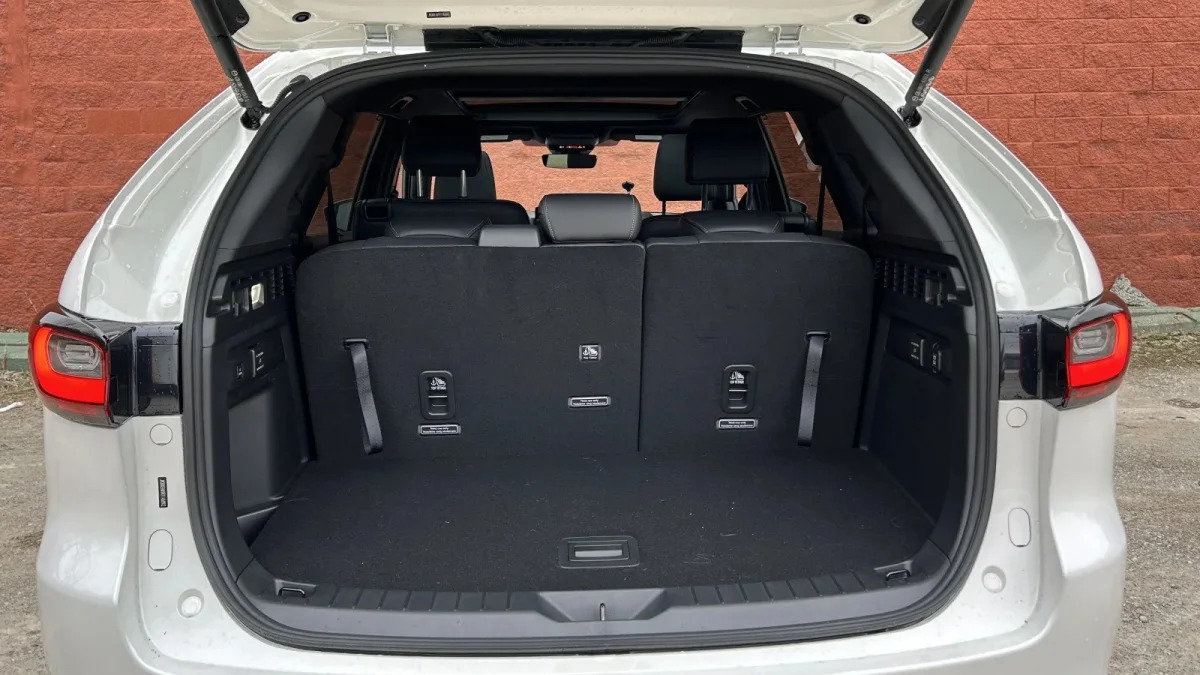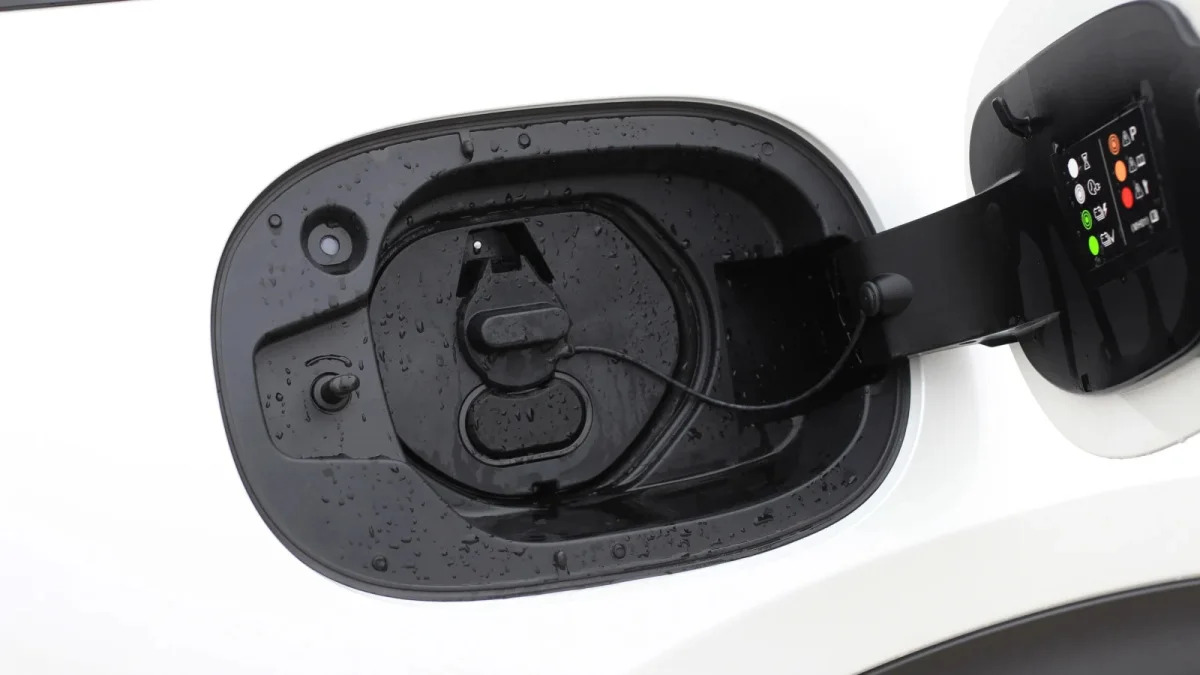2024 Mazda CX-90 PHEV Long Term Wrap-Up: We have some suggestions

For a company so defined by small, light sports cars, it’s funny to think that Mazda’s most important and pivotal car is a three-row (and also two-row) family SUV. We can make a strong argument for that statement, as the CX-90 is the first Mazda model in the country on the brand’s new rear-drive-based platform and completely new, in-house powertrains that will likely trickle down to other models. Plus, it’s a key part of Mazda’s best-selling product lines: its SUVs. That’s why we wanted to spend more time in one, specifically, a 2024 Mazda CX-90 Premium Plus plug-in hybrid. We wanted to learn whether the new platform, and especially the hybrid powertrain, is able to hit the ground running, or if Mazda has work to do. The answer is both, with some aspects still living up to our expectations of fun and style, and others in need of revision.
Read all Long-Term Mazda CX-90 posts here
We’ll start with the good. We dig the looks. Not only does the new platform offer rear-drive dynamics, but it gives the CX-90 classic rear-drive proportions. It’s got the long nose and front wheels pushed far forward. And the simple greenhouse is planted way back on the rear wheels. It’s simple and handsome, and looks distinct from most mainstream three-row SUVs, and more familiar to premium machinery.
The interior keeps up the premium vibes. It has an uncluttered dash, but one filled with nice physical switchgear. We especially appreciate the total lack of piano black plastic, too. The color scheme was a little plain on our Premium Plus, but spruced up with some brassy bronze accents in the seats. It’s reasonably spacious, though the third row is on the small side. Luggage space is a matter of perspective. It’s behind basically every mainstream option, but better than many upscale ones. Somewhat polarizing was the infotainment system. Some of us like the physical dial that is required for most operation, and some of us wished we could use the touchscreen as a touchscreen all the time. We did appreciate the flexibility to use the CX-90 as a giant backup battery. While it can’t deliver as much juice from its battery as some EVs, the 1,500-watt socket in the back is still quite usable in a pinch.
And on the chassis front, the CX-90 is all Mazda, maybe even too much so. The ride is on the firm side, but it also keeps body lean to a minimum. If you feel like probing the limits of its capabilities, it’s surprisingly game to play along. Steering is super precise, reasonably quick and the feel is weighty and progressive. The front end responds quickly, and the whole thing feels fairly neutral. It puts the sport in sport utility vehicle. This also means that besides being bumpier than most family haulers, we found that navigating parking lots could get pretty tiring with the heavy steering. We respect the commitment to driving enjoyment, but we also know a lot of people would like just a smidgen more comfort.

This leads us to the real problem of our CX-90: the plug-in hybrid powertrain. It does boast plenty of power (323 horsepower and 369 pound-feet of torque), and in Sport mode, when the engine is running all the time, it delivers peppy performance and solid throttle response. But you’ll want to leave it in EV and Normal mode, which will prioritize electric driving when possible. It has a quoted range of 26 miles, and we usually landed somewhere in the low 20s for range, which is fairly usable. Like so many other PHEVs, though, running on electric power only means you’re working with significantly fewer ponies, which leads to sluggish acceleration. Not only that, some of us were bothered by the transition from electric to gasoline, feeling that the gas engine didn’t engage quickly enough or comfortably enough. The new eight-speed automatic adds additional complication with a couple more cogs than most Mazdas from which it must pick. And with the electric motor sending power through the transmission, the gearing needs for EV-only versus hybrid modes can be different. It leads to some hunting and awkward shifting — at times, even uncomfortable and jolting to those in the cabin.
Then there’s the fuel economy. We came fairly close to its EPA rating of 25 mpg combined, with our overall average at 24.56 mpg. So that’s not terrible, but we’d like to see better from any hybrid. A lot of our driving was done on long road trips, something to be expected of a large family vehicle. As such, the benefits of 26 miles of EV range are lost in all the miles dependent on the engine. It highlights the fact that a PHEV is really only worth it in some fairly specific cases. First, it has to be plugged in every day, otherwise all the battery capacity is completely wasted. Second, most of your driving needs to be relatively local. On long trips, it won’t do much good, but in town, or to the next town over and back, it can be very beneficial.

There is some good news in this, though. The CX-90 isn’t only available with the plug-in hybrid powertrain. It also offers a turbocharged straight-six, in two outputs. This engine is a smooth and punchy option, and the eight-speed handles it better than the complicated hybrid. As such, it’s likely the version to get, since it still has all the things we love about the CX-90, but without the wonky powertrain.
Our time with this CX-90 was an odd one. It’s clear that Mazda has some fine tuning to sort out on the PHEV. Once it’s sorted, though, it can join its conventional six-cylinder twin as an upscale, fun-to-drive hauler that can appeal to those who want something more than just a big soft box.
Key takeaways:
It’s a beautiful and upscale SUV that feels like a step up from most mainstream three-row SUVs.
It has impressively fun steering and handling like basically every Mazda.
The plug-in hybrid powertrain needs some major refinement, and its efficiency can be somewhat underwhelming.







